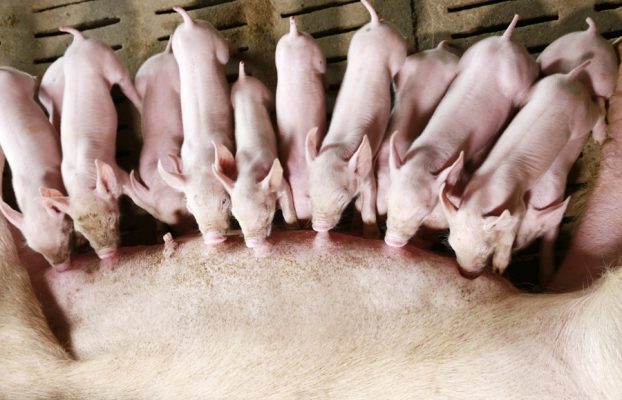Amino acids for animal feed
Amino acids are essential components in animal feed. These amino acids are the fundamental building blocks of proteins and play a crucial role in the growth, development, and health of animals.
Amino acids are molecules containing carbon, hydrogen, oxygen, and nitrogen, and sometimes sulfur. There are twenty common amino acids used to build proteins in living organisms. Amino acids are characterized by having an amino group (-NH₂) and a carboxyl group (-COOH) attached to the same carbon atom, called the alpha carbon (α). The variable structure on the third bond of this carbon is what distinguishes different amino acids.
Essential for growth: Amino acids for animal feed are essential for the optimal growth of animals, as they are the basis of the proteins that make up muscle tissues, organs, and feathers.
Improved digestion: By providing a source of high-quality amino acids, amino acids optimize the digestion of nutrients in the diet, leading to better nutrient absorption and more efficient growth.
Support for immunity: Some amino acids, like glutamine, play a significant role in strengthening the immune system, making animals more resistant to diseases.
Reduced stress: Amino acids can help reduce stress in animals, promoting calmer and healthier behavior.
Greater feeding efficiency: By optimizing the ratio of essential amino acids in the diet, feeding efficiency is improved, which can reduce feeding costs.
Poultry production: Amino acids are used in poultry feed to improve growth, meat quality, and egg production.
Livestock: They are applied in cattle feed to promote weight gain and general cattle health.
Aquaculture: In fish and shrimp farming, amino acids for animal feed are used to improve growth rates and the quality of the final product.
Companion animals: They are also used in pet food to promote healthy skin, shiny fur, and sustained energy.
Dairy and egg industry: In milk and egg production, amino acids help optimize quality and quantity of production.
Healthy growth: Amino acids are essential for the healthy growth and development of animals, resulting in higher-quality products in the food industry.
Nutritional efficiency: By balancing the diet with essential amino acids, feeding efficiency is maximized, and resource waste is minimized.
Improved quality: Animal products obtained with amino acid supplementation are often of higher quality in terms of meat, milk, or eggs, meeting consumer demands.
Reduced costs: By improving feeding efficiency, production costs can be reduced while improving economic outcomes in the animal feed industry.
Arginine: Arginine in animal feed is important for protein synthesis and the regulation of amino acid metabolism. Additionally, it plays a key role in immune function and cardiovascular health in animals. Arginine can also improve the efficiency of nitrogen utilization in the diet, contributing to optimal growth and performance in animals.
Cysteine
Glycine
Histidine: Histidine is an essential amino acid for many animal species, meaning the body cannot synthesize it and it must be obtained through the diet. In animal feed, histidine is important for growth, tissue repair, and protein synthesis.
Isoleucine: Isoleucine is an essential amino acid in animal feed, crucial for protein synthesis, muscle growth, and proper metabolic function. It is particularly important in animal production to optimize performance and health.
Lysine: Lysine in animal feed is fundamental for protein synthesis, promotes muscle and bone growth, and improves feed efficiency by balancing protein quality, thereby contributing to optimal animal performance. At Quimidroga, we also offer lysine in liquid form to facilitate mixing and application in diets.
L-Methionine: Methionine is an essential amino acid in animal feed, vital for protein synthesis, growth, and tissue maintenance. Additionally, it is a key component in egg and feather production in poultry, as well as in liver health and antioxidant function in various animals. Its supplementation is common to ensure an adequate dietary balance and maximize animal performance.
Threonine: Threonine is an essential amino acid in animal feed, key for muscle protein synthesis, intestinal health, and immune system strengthening. Proper supplementation in the animal diet ensures optimal growth, a better immune response, and balanced intestinal health.
Tryptophan: Tryptophan is an essential amino acid in animal feed, necessary for protein synthesis and the production of neurotransmitters like serotonin and melatonin. It contributes to the growth, development, and emotional state of animals. Its inclusion in the diet is vital to promote optimal performance and animal welfare.
Valine: Valine is an essential amino acid in animal feed, vital for protein synthesis and muscle growth. Its presence in the diet is crucial for maintaining healthy performance in animals.
Related News Posts Trends
On our blog you will find articles about our products and industries






